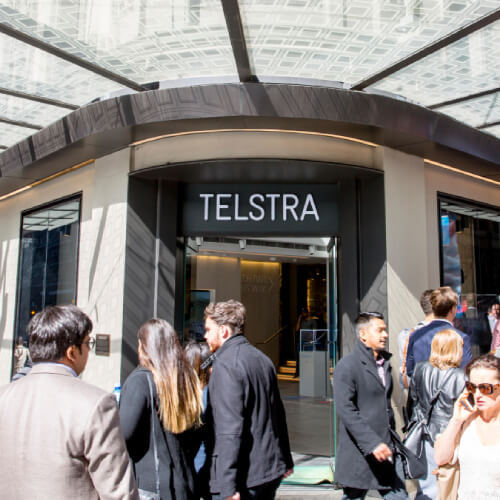Telstra's rivals push back against TPG sharing deal
Unlike many network sharing deals that are based on joint access, this partnership gives Telstra full control over the infrastructure and network coverage.

Telstra's planned network sharing deal with smaller Internet provider TPG is generating plenty of pushback – virtually the entire industry is opposed and some experts say it shows the competition model is broken.
The agreement, announced in February, would allow Telstra to access TPG's spectrum holdings in regional Australia while in turn granting TPG use of Telstra's mobile towers.
TPG says as a result of the agreement it will shut down around 700 of its own rural basestations, although the two companies will continue to operate their own core networks.
Figure 1:  The deal with TPG gives Telstra full control over infrastructure and network coverage.
The deal with TPG gives Telstra full control over infrastructure and network coverage.
(Source: sammy/Alamy Stock Photo)
The arrangement – technically known as a multi-operator core network (MOCN) – requires regulatory approval by the Australian Competition and Consumer Commission (ACCC).
Telstra's prime competitor, Optus, has fired repeated volleys at the plan, declaring it will reduce competition, deliver higher prices and give Telstra too much control over spectrum.
Analysys Mason, in a paper commissioned by Optus and submitted to an ACCC consultation, said the deal would give Telstra access to 65% of available spectrum, up from its current 46%, and enable the company to deliver speeds 3x faster than Optus in the 700MHz band and 10x faster in 3.5GHz.
Full control
One common industry criticism is that, unlike many network sharing deals that are based on joint access, this partnership gives Telstra full control over the infrastructure and network coverage. Critics also call out the clause in the agreement that gives Telstra exclusive use of its 5G network for six months before it grants access to TPG.
Commpete, an industry group representing smaller telcos and mobile virtual network operators (MVNOs), said the network sharing partnership would remove TPG as a regional competitor, reduce wholesale competition and increase Telstra's dominance in regional areas. It added that if the ACCC approves the deal, it should mandate non-discriminatory wholesale access across the entire Telstra/TPG nationwide network.
But some experts say the plan shows it's time for an overhaul of the entire industry competition model.
Analyst Paul Budde says TPG's decision to not build a network with the spectrum it had acquired "totally undermines the old regulatory regime," which has been built around infrastructure-based competition and spectrum allocation.
"Regulation facilitated this and discouraged the sharing of infrastructure and sometimes actively prohibits it," he said in his submission to the Australian regulator.
Budde continued: "Now Telstra has changed this by actively promoting the sharing of their infrastructure with other players ... We would argue that these changes require a total review of mobile telecommunications regulation."
Want to know more? Sign up to get our dedicated newsletters direct to your inbox.
In his submission to the ACCC, Mark Gregory, associate professor of electrical engineering at RMIT, said the deal was a logical move by both players that arose out of ACCC's 2018 decision to rule out mobile roaming between the networks.
"The failure of the ACCC to acknowledge and understand that new competitive infrastructure would not eventuate in large areas of regional and remote Australia underpins the rationale for TPG to seek to put in place a service arrangement with Telstra," he said.
Gregory said if ACCC approves the deal it should require Telstra to restructure to separate its retail and wholesale businesses, with price regulation in areas with fewer than two alternative third-party infrastructure providers.
Related posts:
— Robert Clark, contributing editor, special to Light Reading
Read more about:
AsiaAbout the Author(s)
You May Also Like












